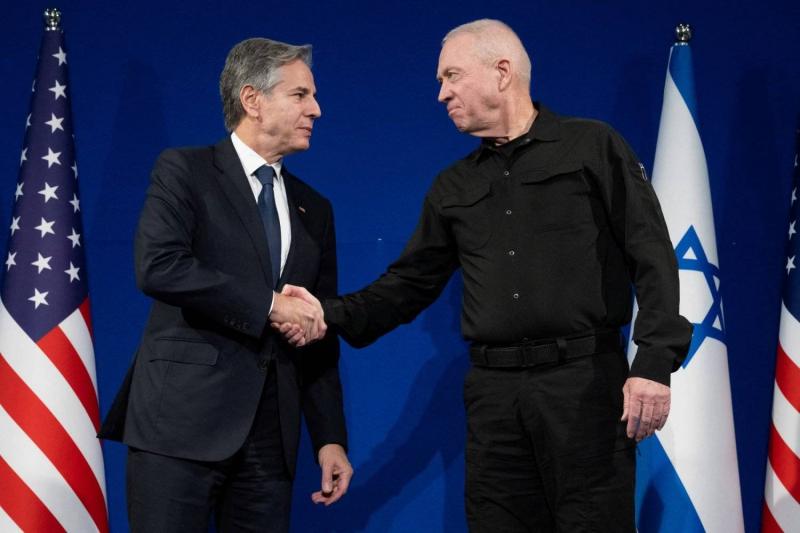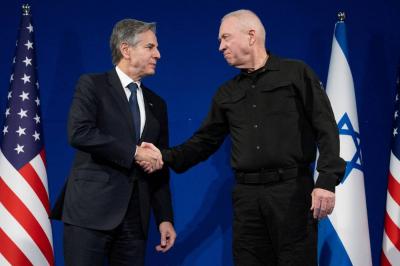The "Times of Israel" reported that officials confirmed Egypt and the UAE are prepared to participate in a security force in Gaza after the war, as communicated by the U.S. Secretary of State to his counterparts during his visit to the region. Three informed officials told the Israeli newspaper that Blinken informed his interlocutors during his visits to Qatar, Egypt, Israel, and Jordan two weeks ago that the United States has made progress on this issue, receiving support from Cairo and Abu Dhabi to establish a force that will work alongside local Palestinian officers.
The newspaper noted that the U.S. is looking to enlist Arab allies for this initiative while preparing to present its vision for post-war governance in Gaza, despite the ceasefire between Israel and Hamas still being out of reach. Nevertheless, officials indicated that Egypt and the UAE have set conditions for their participation, including a demand to link the initiative to the establishment of a path to a future Palestinian state—a result that Prime Minister Benjamin Netanyahu has vowed to prevent.
One source revealed that Egypt is also demanding the complete withdrawal of Israeli forces from Gaza— a condition likely to conflict with Netanyahu's commitment to maintain overall security control over the territory after the war, with the ability to re-enter to prevent Hamas's return. Meanwhile, the UAE has called for U.S. participation in the post-war security force in Gaza, according to an Arab official.
Blinken told his counterparts that the United States would help establish and train the security force and ensure it receives a temporary mandate, with the aim of eventually replacing it with a fully Palestinian body, adding that the goal is for the Palestinian Authority to ultimately control Gaza. The reunification of the Gaza Strip and the West Bank under a single governing entity is seen as an integral step toward a two-state solution.
The source stated that Blinken clarified that the U.S. would not contribute its own forces. During a press conference held on June 12 in Doha, Blinken stated that the U.S. and its partners would soon unveil their plans for post-war governance in Gaza. He added, "In the coming weeks, we will present proposals for the key elements of the day after—planning that involves concrete ideas on how to govern, ensure security, and facilitate reconstruction."
Officials who spoke to the "Times of Israel" indicated that the U.S. is working on three concept papers regarding each of these issues, adding that Washington hopes Saudi Arabia will lead the reconstruction efforts. As for governance, Blinken privately told his counterparts that the goal would be to form a transitional government in Gaza that would work closely with regional countries, according to the officials.
Blinken has been in talks for months with a contact group of counterparts from Saudi Arabia, the UAE, Qatar, Jordan, Egypt, and the Palestinian Authority. He has also visited Morocco, Bahrain, Turkey, Indonesia, and others in an effort to garner broad international support for stabilizing Gaza after the war.
The United States has urged Israel to move forward with its own plans for the "day after," warning that failure to do so would result either in a permanent Israeli occupation of the territory or a period of chaos in which Hamas could regain control. Netanyahu has refused to engage in high-level discussions on post-war governance in Gaza for several months, unwilling to confront his right-wing coalition partners who want Israel to occupy Gaza and rebuild settlements there.
Israeli Defense Minister Yoav Gallant stated to reporters on Tuesday that he discussed his own "day after" plans during his meetings this week with senior U.S. officials in Washington, asserting that Gaza should be managed by a group of "local Palestinians" along with regional partners and the United States, acknowledging that this would be a "long and complex process."




